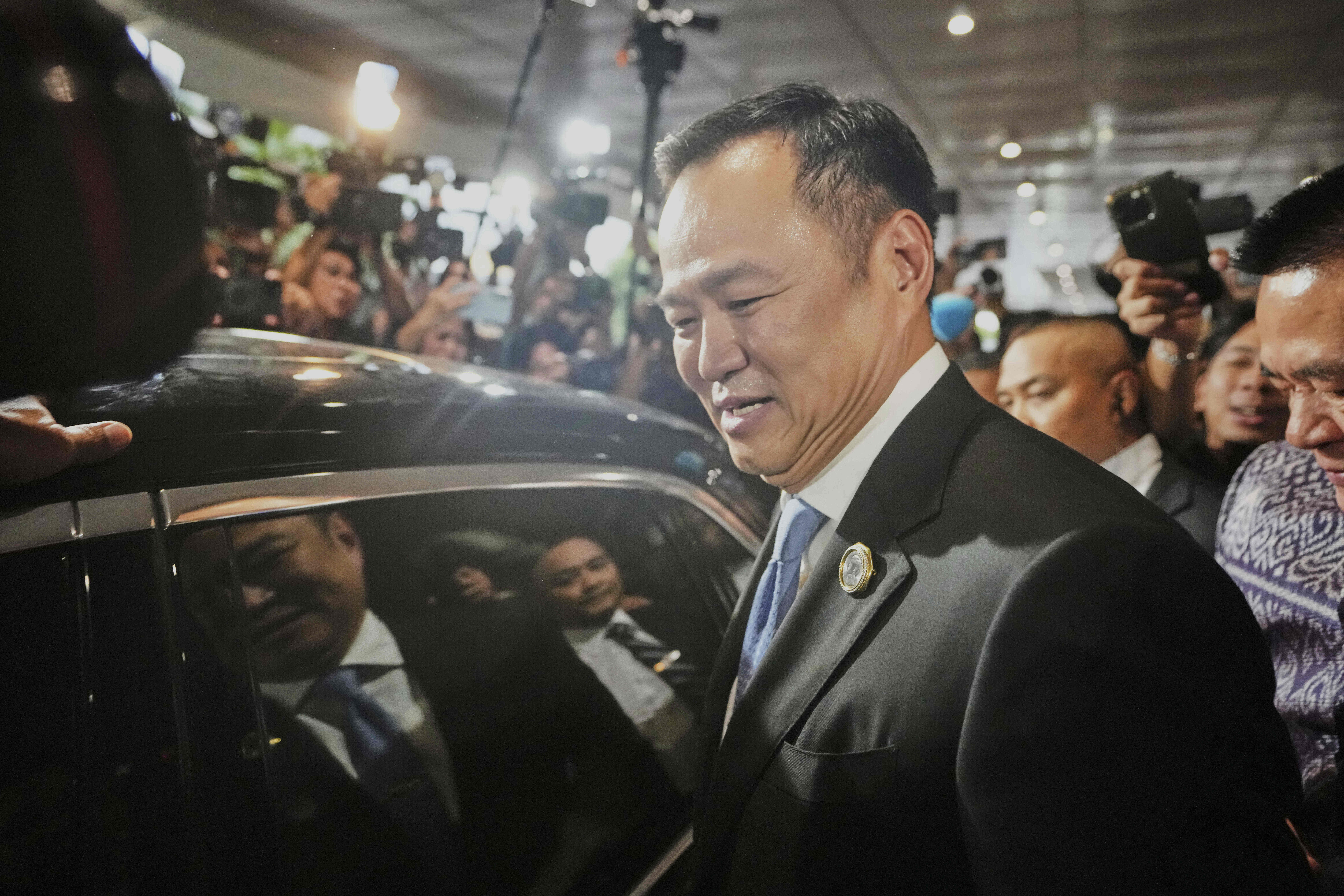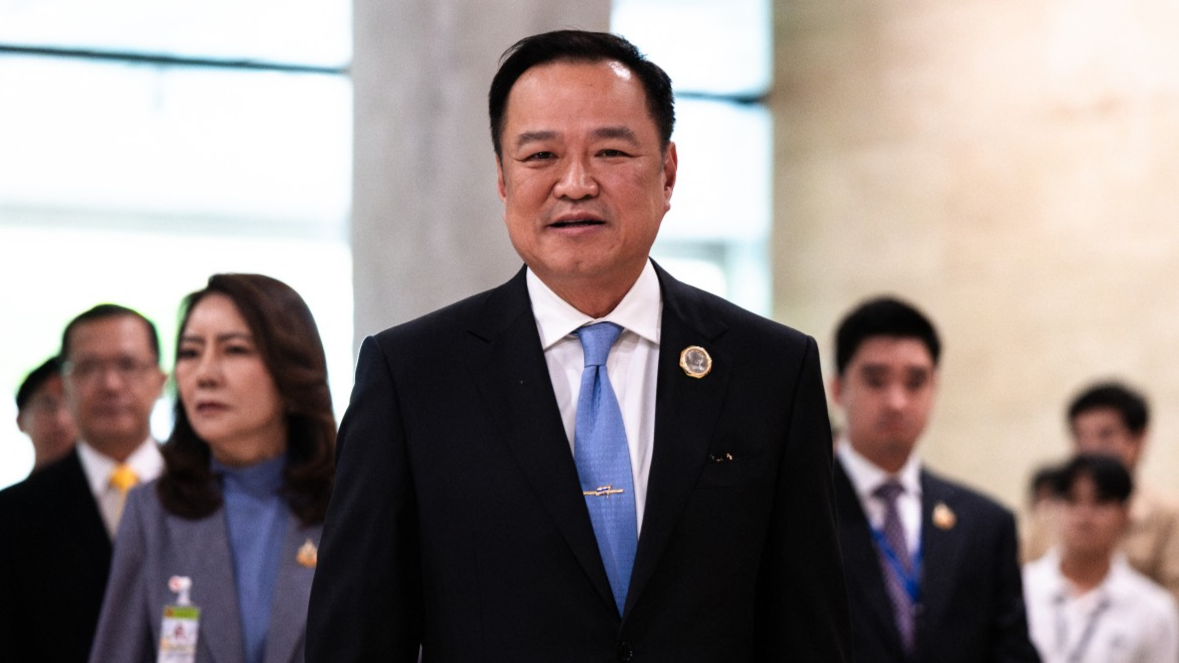
BANGKOK - Thailand's parliament elected the opposition Bhumjaithai Party's leader, Anutin Charnvirakul, as the country's new prime minister on Friday.
Media and analysts believe this development may temporarily ease political turmoil but sets the stage for continued multilateral power struggles.
While Anutin's election may offer a respite from political instability, he will lead a minority government facing significant governance challenges.
His promise to dissolve the House of Representatives within four months after taking office to pave the way for a general election will keep the political climate highly volatile.
A compromise premier
Born in 1966, Anutin is a seasoned politician who previously served as deputy prime minister and minister of public health.
After the 2023 general election, his Bhumjaithai Party became the second-largest partner in the ruling Pheu Thai-led coalition.
However, the Bhumjaithai Party withdrew its support in mid-June following the leak of a controversial phone call between then-Prime Minister Paetongtarn Shinawatra and Cambodian Senate President Samdech Techo Hun Sen over the border dispute.
In the wake of a constitutional court ruling that removed Paetongtarn's premiership over ethics violations on Aug 29, intense negotiations began among various political factions.
Her Pheu Thai Party attempted to nominate its only remaining prime ministerial candidate but lacked parliamentary majority support.
The main opposition People's Party, holding nearly a third of the lower house seats, emerged as a kingmaker.
They set conditions, including constitutional amendments and a firm timeline for dissolving the lower House of Representatives, which Anutin was the first to publicly accept.
Ultimately, the People's Party and Anutin's Bhumjaithai Party reached an agreement with several key conditions. Anutin is elected as Thailand's 32nd prime minister and the third since the 2023 general election.
ALSO READ: Thailand's parliament elects Anutin Charnvirakul as new PM
A challenging road ahead
Local media reports indicate that parties within the Bhumjaithai-led coalition have already expressed their intentions for cabinet positions.
A preliminary plan suggests the Bhumjaithai party would secure 12 of the 35 cabinet seats, with Anutin also serving as minister of interior.
The People's Party has reportedly requested "neutral figures" to lead the crucial ministries of finance, commerce, and foreign affairs.
Thai media outlets believe Anutin's minority government faces considerable challenges.
First, its ability to effectively implement policies without a parliamentary majority remains in question.
Although the People's Party voted for Anutin, it has repeatedly emphasized its intention to remain in opposition and reserves the right to initiate a no-confidence vote at any time.
This "inherent weakness," as local media described it, constrains the new government from its inception.
Second, economic difficulties and social conflicts will continue to test the new administration.
Thailand is currently grappling with a sluggish economic recovery, slowing investment, high levels of household debt, and social security issues.
Analysts noted that under the terms of the agreement with the People's Party, the primary tasks of Anutin's government are to advance constitutional reform and prepare for a new election, leaving limited scope for significant actions concerning economic recovery and improving livelihoods.
Additionally, Anutin and his allies are reportedly under investigation for alleged senate election-rigging and are involved in a land dispute case in Buriram province.
If these cases yield unfavorable rulings, his legitimacy as prime minister may face challenges.

An unpredictable future
In addition to the challenges faced by Anutin's new coalition government, there are still other uncertainties for Thailand's political landscape.
Anutin is expected to finalize his cabinet next week and deliver a policy statement to parliament in mid-September, according to the Thai Public Broadcasting Service.
He has promised to dissolve the lower house by mid-January next year and hold a general election by mid-March. The outcome of that election is unpredictable.
Deep-seated political divisions and a complex power structure persist. Although Paetongtarn's Pheu Thai party is no longer in power, the influence of the Shinawatra family remains significant, which has dominated Thai politics for decades.
On the night before the prime ministerial vote, Thai media reported that Paetongtarn's father, former Prime Minister Thaksin Shinawatra, had left the country, drawing intense public attention.
Thaksin posted on social media on Friday morning that he had flown to Dubai for medical treatment and promised to return to Thailand on Sept 8.
The Supreme Court's Criminal Division for Persons Holding Political Positions is scheduled to hand down its verdict on Thaksin's hospital detention case on Sept 9, which could result in his return to prison to complete his six-month sentence.
Whether Thaksin returns as promised, the court's ruling could have an unforeseeable impact on the Thai political situation.
Analysts also believe the People's Party's agenda for constitutional reform and its call for early elections will face resistance as it touches upon the interests of various factions.
Against this backdrop, Thailand's political deadlock seems difficult to unlock in a short time, and the possibility of a return to political turmoil cannot be ruled out.


